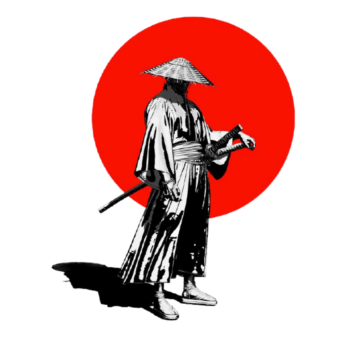Job Hunting for College Students (就活) Part 2 Posted by eriko1 on Dec 7, 2021 in Business, Culture
Here is part 2 of job hunting Japanese style (see Part 1). So what happens if you did not get a job before you graduate from college? Here are two options.
- You graduate from college and continue to look for a job = 就職浪人(shushoku ronin). 浪人 (ronin) is a wandering samurai without a lord. So 就職浪人 is a wanderer without a job.
- You stay in college and continue to hunt for a job as a college student = 就職留年 (shushoku ryunen). 留年(ryunen) means to repeat a year at school.
Here is a TV commercial that was criticized (批判するhihansuru) as too realistic (現実的 genjitsuteki) for those struggling in the job hunting reality. It was broadcast in February (2014), when many students were getting 内定(informal job offers.)It has caused an uproar (騒動 soudo). Even if the story is realistic, nobody wanted to hear it from a large corporation. If you are interested, here is the story.
Today, there are more options. You can start your own business. Some decide to be in agriculture, some choose not to get a permanent job to pursue what they want to do, some go to graduate schools (大学院 daigakuin), and some decide to study abroad (留学 ryugaku). But most college students choose to get a permanent job right after college.
就職浪人
There are several reasons for people becoming 就職浪人. Some might have wanted to work in popular industries such as mass media but did not get in, and some might have failed in the civil servant exams, for instance. So they wait another year to try. However, there is a big pit hole. If you did not start working right after college, you are not regarded as “new graduates (新卒 shinsotu)” and are most likely not suited to apply for jobs that are offered only for new graduates. Because of this, 就職浪人 must compete for a job with those who already have experience, and those who have special skills earned from studying overseas. But I hear things are changing, albeit slowly.
So it may be better to remain in college as 就職留年since you can repeat your job hunting activities and apply as a new graduating student again. I know it may sound absurd – staying in college and paying for tuition (学費 gakuhi) just to apply for a job as a new graduating student. Fortunately, things are changing for the better. Some large corporations have started to allow those who graduated within 3 years and have no permanent work experience to apply to new graduating student positions, responding to the new government guidelines (指針 shishin).
There is another feature in job hunting among college students in Japan. They apply to a company, not to a particular job. During the new employee initiation ceremony on April 1, you will be given an official letter of appointment, which will inform you in which department you will work. It is called 配属辞令 (haizoku jirei). Some companies may rotate you in a few departments to find the most suitable job in the first few months. Of course, if you majored in chemical engineering, for example, it is more likely that you can apply to a particular job related to your major.
Remember, Japanese corporations are not raising specialists, but rather generalists. So in March, employees are given a formal letter of new appointment (人事異動 jinji ido) every few years to rotate to other departments to gain experience and learn a new part of the business. The appointment will start in April, the new fiscal year. This is a very typical Japanese corporate system.
I was asked about this by my client at a Japanese university. He was researching these generalist vs specialist issues. I told him that we applied to a specific job, not to a company. My company does not tell me to rotate to another department. Both systems have pros and cons. In the Japanese system, your interest and your forte are not the most important focus on a job. That may be very unsatisfying and stressful for some, but one can learn a wide variety of job functions and learn about the company as a whole. On the other hand, the US system raises specialists who have abundant experience and knowledge on certain issues, but they may not be used in other positions.
Even the conservative and slow-changing Japanese society has generated many entrepreneurs.
Some corporations are willing to accept students three years after graduating from college to new graduate jobs. But most college students are strictly controlled by this job-hunting schedule. Ironically, the COVID-19 pandemic has some positive effects to drive adventurous ones to do something different.

Build vocabulary, practice pronunciation, and more with Transparent Language Online. Available anytime, anywhere, on any device.





Comments:
Claudia:
That’s exactly how I felt after graduating from college — like a wandering samurai without a sword!! Which is how I ended up in grad school!
eriko1:
@Claudia A grad school was also my choice as I knew I would not belong to those information sessions!